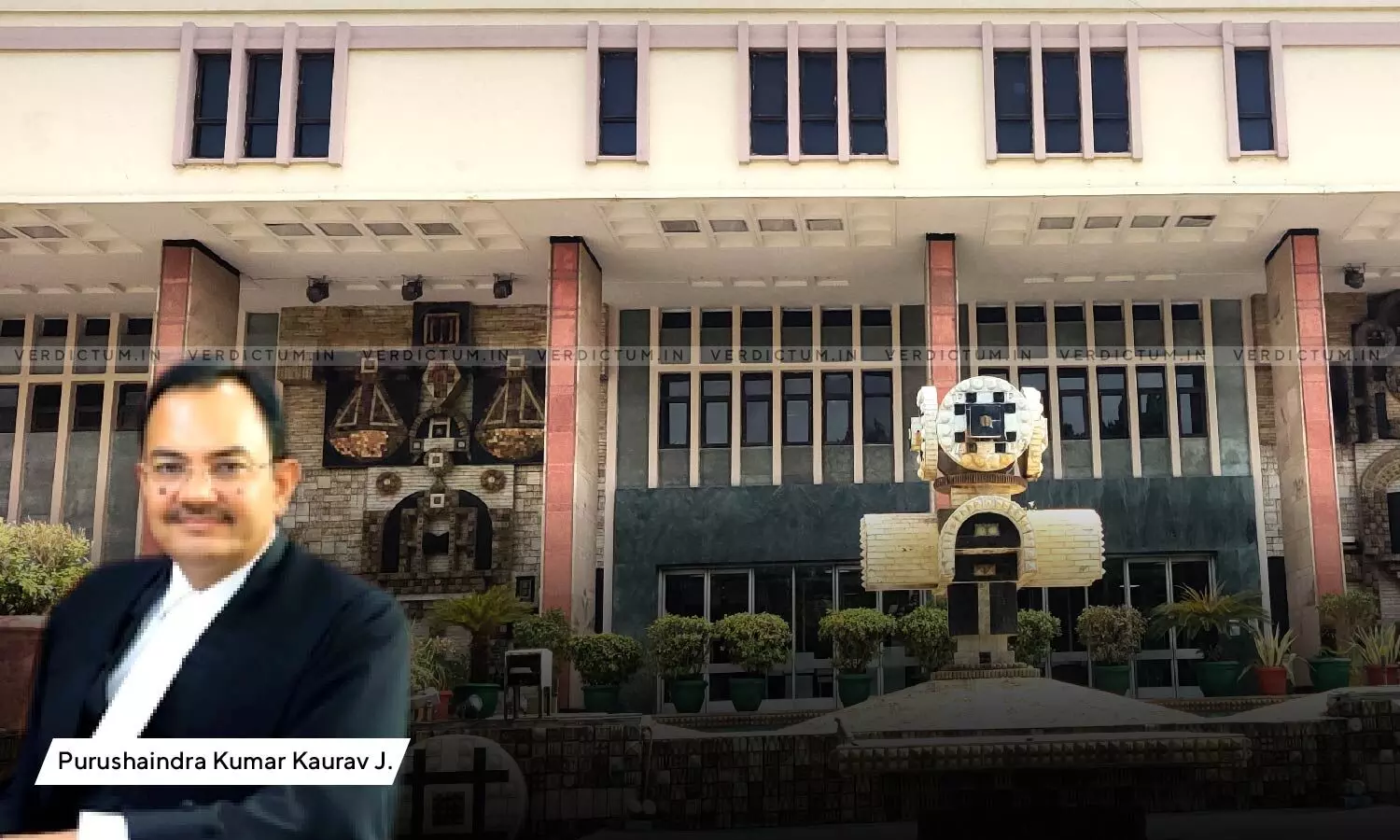
Res Ipsa Loquitur Principle Doesn’t Apply: Delhi HC Grants ₹10L Ex-Gratia Compensation To Wife Of Man Who Died Due To Electrocution
 |
|The Delhi High Court has directed BSES Yamuna Power Limited to pay ex-gratia compensation of Rs. 10 lakhs to a widow whose husband died due to electrocution in the year 2017.
The Court was deciding a writ petition filed by the widow seeking compensation of Rs. 50 lakhs from the authorities.
A Single Bench of Justice Purushaindra Kumar Kaurav said, “… the present case does not justify the application of the maxim res ipsa loquitur and there is no conclusive evidence on record to suggest otherwise. The said maxim applies in cases where the facts clearly and unequivocally indicate that responsibility for the incident can directly be attributed to statutory authorities, rather than to private parties or a combination of private and public entities.”
The Bench noted that the negligence which led to the leakage of current is attributable to an outgoing wire, leading to its flow to the shutter gate and subsequently to the channel gate, prima facie, cannot solely be attributed to BSES, at this stage.
Advocate Saeed Qadri appeared on behalf of the petitioner while Advocate Manish Srivastava appeared on behalf of the respondents.
Brief Facts -
The petitioner (widow) called upon the High Court to adjudicate the dispute pertaining to the claim for compensation on account of unfortunate death of her husband due to electrocution. The petitioner’s husband (deceased) was working as a Sub-Inspector since 1990 in Delhi Police (Traffic) and ṭhe marriage between the two was solemnized in 1991 out of which three children were born. In 2017, when the deceased had gone to the cycle market to buy a gift for his youngest child, it started raining. He ran to find shelter and while endeavouring to protect himself from rain, he came in contact with a channel gate located near Shop No.330 in New Lajpat Rai Market and got electrocuted. He was then taken to the Hospital, where, he was declared dead on arrival. After the post-mortem was conducted, the dead body of the deceased was sent to the mortuary.
Thereafter, an FIR was registered under Section 304A of the Indian Penal Code (IPC). The petitioner filed an application under Section 156(3) of the Criminal Procedure Code (CrPC) before the Magistrate. She made representation to the respondents seeking compensation of Rs. 50 lakhs for the negligence of statutory duty as prescribed under Section 42 and 53 of the Electricity Act, 2003 read with Regulations 13, 30 and 34 of the Central Electricity Authority (Measures Relating to Safety and Electricity Supply) Regulations, 2010. BSES responded that the matter is currently under investigation and the Electrical Inspectors report indicated that no negligence could be attributed on the part of BSES. Being dissatisfied, the petitioner filed the writ petition before the High Court.
The High Court in view of the above facts observed, “The regulations and the provisions of the Electricity Act, 2003 also do not conclusively establish that it was only the DISCOM i.e., BSES herein, who had the sole and direct responsibility to prevent such a leakage. Admittedly, the consumer-shopkeeper is the main accused in the chargesheet and BSES has not been named.”
The Court added that in the absence of any material evidence on record which demonstrates a lapse on the part of BSES, the Court cannot conclusively establish negligence on the part of BSES and therefore, the principle of res ipsa loquitur becomes inapplicable. It further noted that the said position can only be established by the parties while leading evidence in a competent Civil Court.
The following disputed facts arose before the Court for adjudication –
a. Whether the current, flowing from the shutter of the shop to channel gate, was attributable to a leakage in the consumer apparatus under his control or the control of BSES?
b. Whether BSES took due care and diligence so as to minimize the risk and danger to life?
c. Whether the duty to maintain the said installation was cast upon the contractor, namely M/s Manjeet Electric works?
“The petitioner herein has prayed for Rs 50,00,000/- to be paid as compensation. It is also pertinent to note here that in accordance with the status report filed by respondent No.3-Delhi Police, the deceased‟s family has already been given Rs. 27,96,496/- in family pensionary benefits and is also receiving monthly pension of Rs.17,150/- till 21.05.2027 and shall receive Rs. 10,290 with effect from 22.05.2027”, it also said.
The Court, therefore, directed the BSES to pay Rs. 10 lakhs as ex-gratia lump sum compensation within three months.
“The petitioner is also at liberty to pursue appropriate legal remedies in the Civil Court. The competent Civil Court is directed to adjudicate the matter within a period of one year from the date of institution of any such suit. BSES is also directed to not cause any undue delay in the proceedings by seeking unwarranted adjournments. It is further clarified that the ex-gratia amount awarded by this Court is independent of, and in addition to, any compensation that may be awarded by the Civil Court”, it further ordered.
Accordingly, the High Court disposed of the petition and granted compensation to the petitioner.
Cause Title- Shagufta Ali v. Government of NCT of Delhi & Ors. (Neutral Citation: 2024:DHC:6855)
Appearance:
Petitioner: Advocates Saeed Qadri, Saahil Gupta, and Mohd. Shakil.
Respondents: ASC Anuj Aggarwal, Advocates Manish Srivastava, Arshya Singh, Yash Upadhyay, Siddhant Dutt, Moksh Arora, Santosh Ramdurg, and Yash Srivastava.